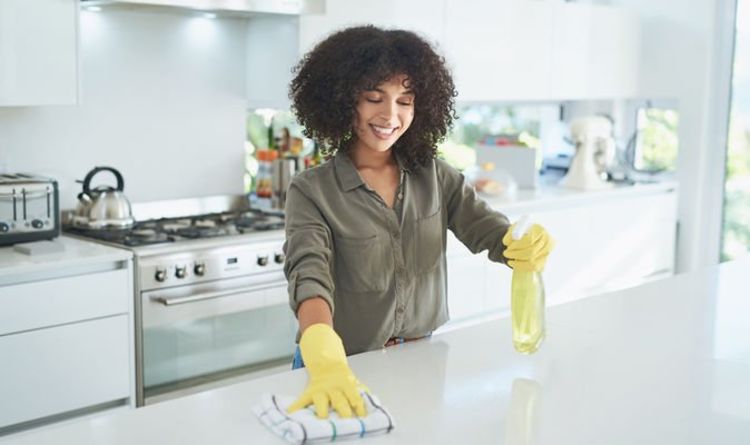
Keeping a good clean and safe kitchen is very essential to keeping yourself and your family safe, and free of illnesses that can be transmitted through food. Whether you live alone, you have a small or large family, or you operate a commercial kitchen, these kitchen rules for safety and good hygiene will help you avoid hazards to your health and the health of the others while working in the kitchen, and through the food prepared there. Your kitchen is most probably the centerpiece of your house, and a hub of activities, unless you are part of the percentage of the population that doesn’t like to prepare their own food, whether it’s because they don’t know how, or they don’t think it’s worth the stress, but even at that you still use your kitchen more than you think. It is probably one of the first places you go to in your home after waking up; for your cup of coffee, your favorite breakfast cereal, or your pancake and syrup, and also probably the last place you go to before going to bed. So, keeping it safe and hygienic is very essential to maintaining good health.
Dangers of Unhealthy Kitchen Practices
- Risk of Food Poisoning: Poor kitchen hygiene can expose you and your family to food poisoning, which is caused by contaminated or spoiled food. This is often caused by gross contamination, where harmful microbes are spread from unwashed hands, or other spoilt foods to healthy foods. The chances of this can be significantly reduced by proper storage, and proper washing of hands before handling food.
- Physical Injury or Harm: If you are not careful, it is very easy to get injured in the kitchen, because you will be handling many potentially harmful things, such as knives, hot oil, not to mention fire, or any other heat source you use in your kitchen. Poor handling of these may lead to physical injury, for you or your family, so it is essential that you observe good kitchen safety practices to avoid those hazards.
- Pests: Poor kitchen hygiene and dirty environments can attract pests such as mice and rats, cockroaches, flies, and so on, which exposes you and your family to the risk of contracting diseases borne by them. This is often caused by a buildup of dirt, unwashed dishes, uncleaned spills, and generally just a bad cleaning habit.
LEARN HOW TO COMPLETELY GET RID OF GNATS AT HOME
In order to avoid these dangers and more, here are some kitchen rules for safety and good hygiene you should follow, to keep you and your family safe and healthy.
- Keep Your Kitchen Clean: It is impossible to enjoy cooking in a dirty kitchen. If you regularly prepare food in your kitchen, then you know it is very easy for things to get messy, so it is essential that you keep it clean in order to avoid exposing yourself to diseases, and the pest that may bring them into your house. A clean kitchen is a healthy kitchen, so here are some kitchen cleaning tips to help you.
- Organize your kitchen: Having a well-organized kitchen makes cleaning easier, not everything has to be on your countertops, that’s why you have cabinets and cupboards. Obviously, there are some things you use more regularly than the others, those things should definitely be on the counter, such as your blender, or air-fryer, and there are other things that you may not necessarily use every day, or that you can easily pick from your cabinet whenever you need them, that don’t need to be on your counter. Keeping your kitchen minimal will really help your cleaning easier and faster. Organizing your kitchen and knowing where everything is when you need them will also help you easily access your kitchen equipment and utensils, so you won’t need to scatter the whole kitchen looking for a spatula.
- Start your cooking with a clean kitchen: As a golden rule, never cook in a dirty kitchen. I know we all love to procrastinate and all, but cleaning everything all together when you are done cooking isn’t a healthy way to live, as you will be exposing yourself to dangerous microbes from all the accumulated dirt, which may pass into the fresh food you’re about to prepare. So clean first, then cook.
- Clean while you wait: If you find yourself in the kitchen doing something that doesn’t require your attention, such as waiting for water to boil, maximize the opportunity by using the time to clean your kitchen, wash something, dust something off, wipe something clean, and you’ll be amazed at how effectively this works in helping you keep a clean kitchen.
- Drain the sink right away: This may sound very basic, but never allow water to linger in your sink after washing the dishes, or for whatever reasons. Always drain the water immediately to avoid providing a breeding ground for germs, not to mention having to dip your hand in cold, greasy, dirty water afterward.
- Wipe your sink after doing the dishes: This is also, super basic, but a dirty sink is very gross and should be avoided at all costs, make sure you wipe your sink clean right after you are done doing the dishes, clean out all the dirt and stains on it, and next time you are ready to cook, you’ll come to a clean and shiny sink.
- Do the dishes immediately: While this also sounds basic, it is very essential to do the dishes immediately, and not wait for them to accumulate before cleaning. Don’t keep dirty dishes in the sink, as it can also serve as a breeding ground for germs and microbes that can contaminate your food and hamper the health of your family.
- Clean as you cook: While you may tell yourself it’s a better idea to do all the cleaning after you are done cooking, this only increases the bulk of work you have to do and may lead to procrastination. Make sure you clean every piece of equipment or utensil no longer in use, while you are still cooking, and do not keep them till after you are done, this will help you maintain a clean kitchen.
- Clean your fridge regularly: Most of your food ingredients and leftovers will be in your fridge, so it is essential that you keep your fridge or freezer clean at all times, in order to avoid contamination.
- Take out the trash: Never allow garbage to accumulate in your kitchen, as this can attract disease-carrying pests into your home, and can serve as a breeding ground for insects, which you don’t want flying or crawling around in your kitchen.
Follow Hygienic Cooking Practices
- Clean: This really cannot be overemphasized, wash your hands and all cooking surfaces such as chopping boards, countertops, and so on before, during, and after cooking. Also keep your cooking utensils such as knives, spoons, baking pans, spatulas, etc. clean before and after use.
- Organize: In order to avoid cross-contamination, which may lead to food poisoning, make sure you separate and organize your food ingredients as appropriate. Separate raw meat, poultry products, eggs, seafood, and other food products, use separate cutting boards and ensure that you keep raw meat away from other foods in your refrigerator.
- Cook your food to completion: Whether in your personal kitchen, cooking for your family, or working in a commercial kitchen, it is essential that you cook your food to the right internal temperature needed to kill harmful bacteria. CLICK HERE to check some of our top-pick air fryers that come with a temperature probe to help you monitor the internal temperature of your food while cooking.
- Preserve your food properly: Make sure you refrigerate your food, ingredients, and leftovers properly, and at the right temperature. Refrigerate leftovers within 2 hours of cooking, in order to avoid spoilage. Make sure your leftovers and open food packets are covered with cling film or sealed in a plastic container.
- Wash your hands: Ensure you wash your hands thoroughly with soap and running water before handling food or cooking, in order to get rid of germs and microbes that may get into your food, and put the health of you and your family in danger. If you have kids, introduce them to the habit of hand washing from an early age, and never start cooking until you have washed your hands.
- Make sure your hair is pulled back, and keep it tightly secure at the back, cover your hair if necessary, to avoid finding hair in your food.
- Use disposable washcloths or paper towels in the kitchen, as dishcloths and towels have more tendency to carry and transfer germs.
- Cover wounds or cuts well to avoid contamination.
CLICK HERE to see the risks involved in keeping a dirty kitchen
Keeping your kitchen safe for safety and good hygiene
- Don’t leave your food unattended. While cooking, make sure you pay attention to your food to avoid overcooking or burning your food, which may lead to fire hazards
- Use the right equipment for the right activity. Deep frying in a small pot may cause spillage on the cooker and result in a fire, so make sure you use the appropriate cooking equipment and utensil for the right activity in order to avoid injury or harm to you and your family.
- Keep explosives and inflammable materials away from the cooker, as they can start a fire hazard.
- Protect yourself from steam burns, and be careful when opening pot lids and containers from the microwave.
- Ensure that you have a fire extinguisher or fire blanket in your kitchen in the case of a fire hazard, so it can be quickly contained.
- Train your kids on how to react in the event of a fire hazard or injury. Have a first aid kit available in your kitchen to take care of any wound, in order to avoid infection and contamination.
- Clean up spills immediately in order to avoid slipping and falling.
- Ensure the gas stove is properly turned off in order to avoid a gas leak, that could lead to an explosion or start a fire.

Pingback: 10 High Quality Knife Sets - hingedpiece.com
Pingback: Gnats in House Remedy: Effective Home Remedies for Gnats - hingedpiece.com